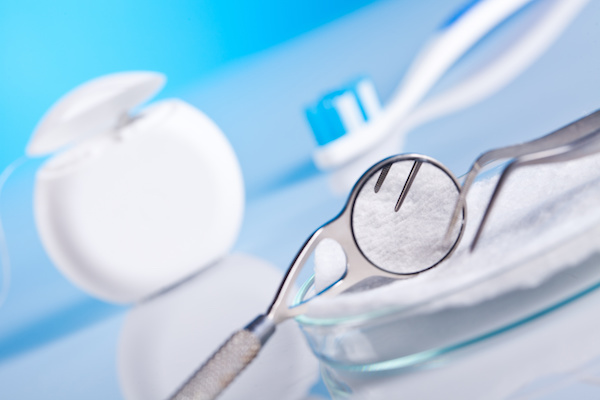
Caring for Dental Restorations at Home
Untreated tooth decay, injuries, or just the natural aging process can cause a person’s natural smile to slowly start to deteriorate. Dental restorations, such as composite fillings, crowns, and implants, can correct some of the major problems that cause a person’s natural smile to not look its best.
Properly placed dental restorations can fix a number of problems ranging from tooth damage, cracks and missing teeth to surface stains and discoloration. Dental restorations, while extremely successful in fixing problems, can only help restore a patient’s smile if they properly cares for them at home.
Failure to properly care for dental restorations at home can cause a newly restored smile to become infected or decayed. This negligence can necessitate further, extensive and expensive dental care. Learning how to properly care for dental restorations at home can help people maintain their beautiful, natural-looking smile for many, many years.
Proper Aftercare for Composite Fillings
Composite fillings, which have the natural look and feel of a tooth, can be used to stop tooth decay from damaging a person’s teeth, serve as an alternative option to dental crowns for people who just had a root canal, and can fix cracked, broken, or chipped teeth. Composite fillings are probably the most common type of dental restoration people receive and are extremely easy to care for at home.
From the moment a person arrives at home after a composite filling, they are able to resume their day-to-day activities. Some people are concerned about eating on the newly placed filling, but composite fillings set almost immediately. In fact, the composite filling sets even before a person walks out of the dentist office. The quick setting of the filling makes it safe to chew on the filling. The only restriction is the person has to wait for the anesthetic to wear off.
In the days after a composite filling has been placed as part of a person’s aftercare, it is important to make sure the filling is flush with the natural tooth. Fillings that are not flush to the tooth will not only be uncomfortable, but can become loose or damaged over time. A person will know their filling is too high if their bite is off or if the filling feels uncomfortable.
Once the compositing filling fits properly in the mouth, the aftercare involved is no different than a person’s regular oral hygiene was before the filling. Aftercare for fillings involves brushing at least three times a day and flossing at least once a day.
Proper Aftercare for Dental Crowns and Implants
Dental crowns and implants are used to help restore extensively damaged teeth. In the case of a dental crown, it is used when at least some of the existing tooth is considered healthy. The dental crown provides a support system that allows a person to keep their natural tooth and restore their smile. A dental implant is used to replace a missing tooth. It often has a crown placed on top of it, but underneath there is no natural tooth.
Aftercare for both dental crowns and dental implants is just like care for natural teeth. To maintain the dental restorations, people will need to brush at least 3 times a day and floss on a daily basis. In addition to regular brushing and flossing, people with dental crowns and implants may want to purchase specialized cleaning tools, such as a water flosser or dental picks, which can help completely clean the tight spaces around the implant or crown.
Schedule Regular Appointments to Checkup on Dental Restorations
Regardless of how careful a person is with his or her at-home care of dental restorations, there is still a need to visit an experienced dentist on a regular basis. These regularly scheduled dental appointments help monitor the condition of dental restorations and provides the opportunity to get a professional cleaning.
How often a person needs to go in for a checkup will vary depending upon the person’s oral health, previous dental history, and whether there is a history of gum disease. In most situations, a person will need to schedule a checkup every three to six months.
Artistic Touch Dentistry can help patients with dental restorations. Whether a person has multiple composite fillings or a dental crown or implant, Dr. Brazdo and her staff will be able to provide patients with detailed step-by-step directions on how to properly care for their dental restoration. Call Dr. Brazdo’s office today to schedule an appointment for a full comprehensive oral examination.

